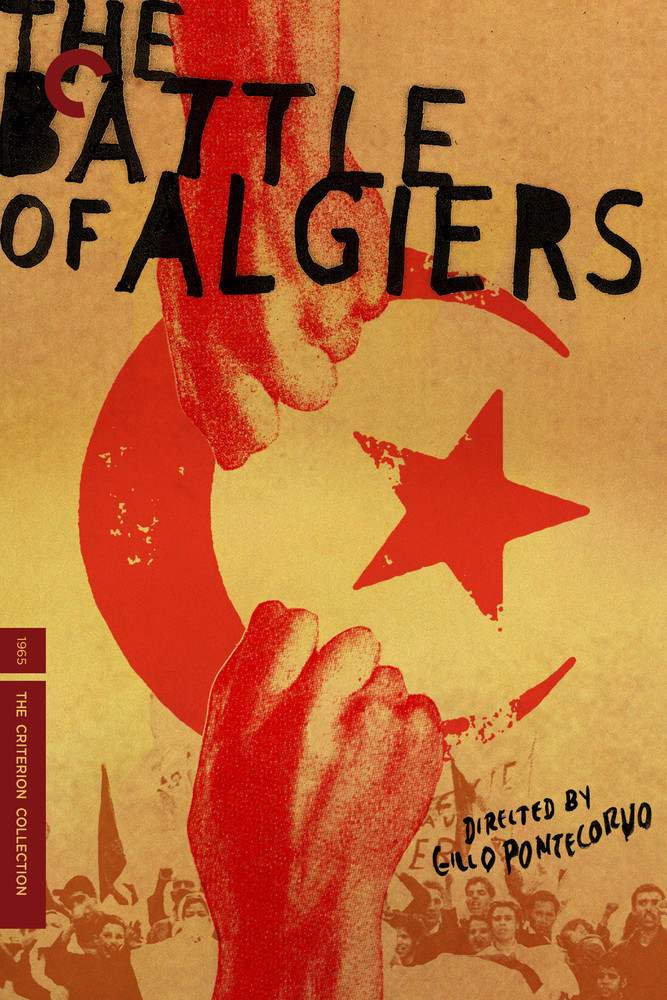At the height of the street fighting in Algiers, the French stage a press conference for a captured FLN leader. “Tell me, general,” a Parisian journalist asks the revolutionary, “do you not consider it cowardly to send your women carrying bombs in their handbags, to blow up civilians?” The rebel replies in a flat tone of voice: “And do you not think it cowardly to bomb our people with napalm?” A pause. “Give us your airplanes and we will give you our women and their handbags.”
“The Battle of Algiers,” a great film by the young Italian director Gillo Pontecorvo, exists at this level of bitter reality. It may be a deeper film experience than many audiences can withstand: too cynical, too true, too cruel and too heartbreaking. It is about the Algerian war, but those not interested in Algeria may substitute another war; “The Battle of Algiers” has a universal frame of reference.
Pontecorvo announces at the outset that there is “not one foot” of documentary or newsreel footage in his two hours of film. The announcement is necessary, because the film looks, feels and tastes as real as Peter Watkins’ “The War Game.” Pontecorvo used available light, newsreel film stock and actual locations to reconstruct the events in Algiers. He is after actuality, the feeling that you are there, and he succeeds magnificently; the film won the Venice Film Festival and nine other festivals, and was chosen to open the New York Film Festival last November.
Some mental quirk reminded me of “The Lost Command,” Mark Robson’s dreadful 1965 film in which George Segal was the Algerian rebel and Anthony Quinn somehow won for the French. Compared to “The Battle of Algiers,” that film and all Hollywood “war movies” are empty, gaudy balloons.
Pontecorvo has taken his stance somewhere between the FLN and the French, although his sympathies are on the side of the Nationalists. He is aware that innocent civilians die and are tortured on both sides, that bombs cannot choose their victims, that both armies have heroes and that everyone fighting a war can supply rational arguments to prove he is on the side of morality.
His protagonists are a French colonel (Jean Martin), who respects his opponents but believes (correctly, no doubt) that ruthless methods are necessary, and Ali (Brahim Haggiag), a petty criminal who becomes an FLN leader. But there are other characters: an old man beaten by soldiers; a small Arab boy attacked by French civilians who have narrowly escaped bombing; a cool young Arab girl who plants a bomb in a cafe and then looks compassionately at her victims, and many more.
The strength of the film, I think, comes because it is both passionate and neutral, concerned with both sides. The French colonel (himself a veteran of the anti-Nazi resistance), learns that Sartre supports the FLN. “Why are the liberals always on the other side?” he asks. “Why don’t they believe France belongs in Algeria?” But there was a time when he did not need to ask himself why the Nazis did not belong in France.



















